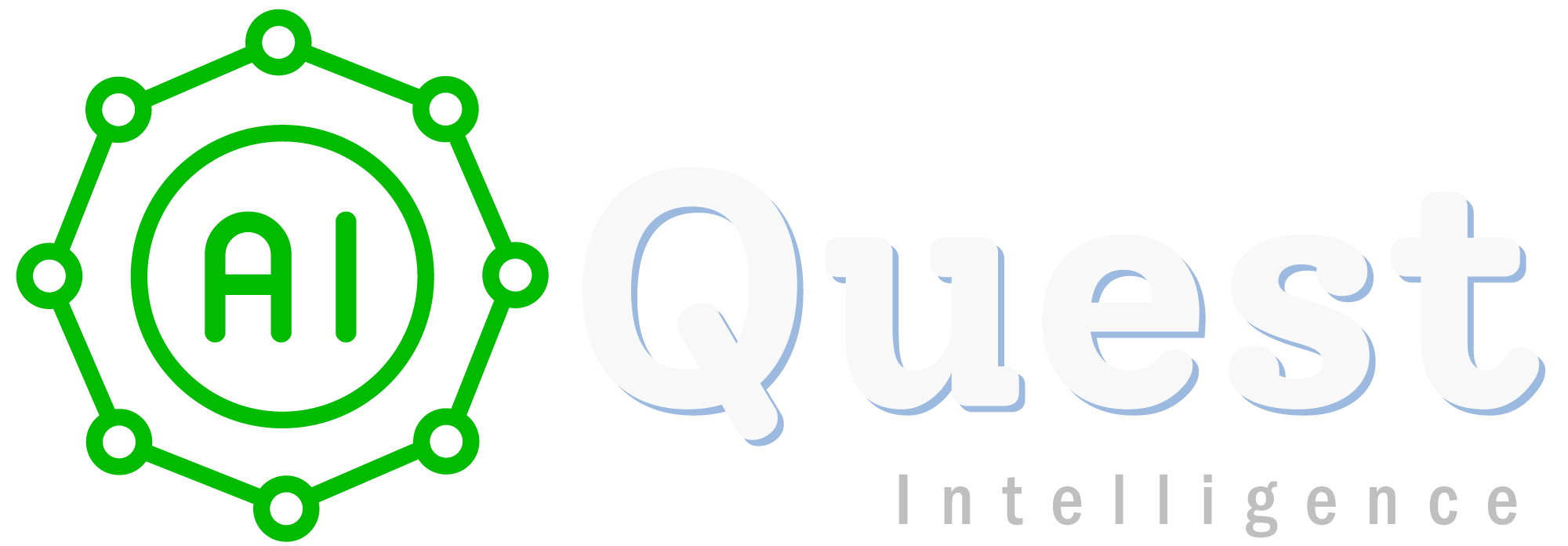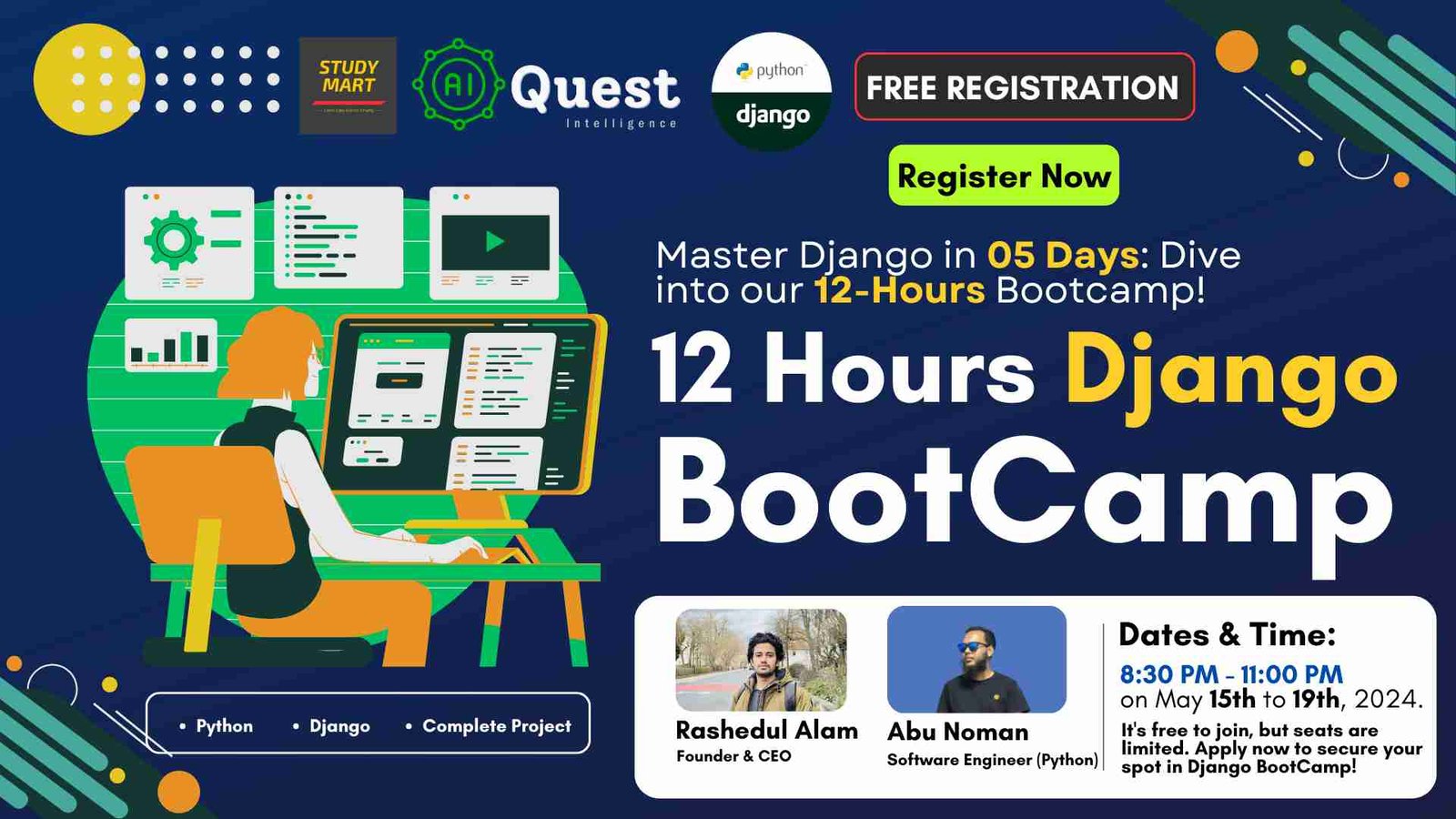The training will consist of five classes, each lasting 2.5 hours, spread over five consecutive days. Here is the module-
Day 01: Introduction to Web Development with Python Programming & Django
Session Topics:
- Intro to Web Development: Understanding web development’s foundational concepts and significance.
- Framework Concepts: Exploration of software frameworks with an emphasis on Django.
- Importance of Python Django: Discuss why Django is a preferred framework for Python developers.
- Environment Setup for Python: Step-by-step Python installation and setup.
- Basic Python Programming:
- Input and Output Functions: Handling user inputs and displaying outputs.
- Variables: Understanding and using variables effectively.
- Naming Conventions: Rules for variable naming and multi-word variables.
- Data Types and Operators: Detailed overview of Python data types and operators.
- Strings and Collection Types: Working with strings, lists, tuples, and dictionaries.
- Control Structures: Using conditional statements (
if,elif,else) and loops (for,while). - Functions and Classes: Introduction to defining functions, classes, and understanding inheritance.
Day 02: Django Fundamentals
Session Topics:
- Understanding Django: In-depth look at the Django framework and its components.
- Django’s MVT Architecture: Exploring the Model-View-Template system.
- Development Environment Setup:
- Installing Django globally and within a virtual environment.
- Configuring Django in Visual Studio Code.
- Django Project and App Basics:
- Creating and setting up a new Django project and app.
- Understanding Django project and app structures.
- Displaying ‘Welcome to Django Bootcamp’ through a basic app.
- Advanced Django Concepts:
- Function-Based Views (FBVs) and URL Routing.
- Template rendering using Django Template Language (DTL) and context data.
- Dynamic content rendering and template inheritance.
- Database Management: ORM, models, query sets, and migrations.
- Django Admin Interface: Creating superusers and registering models.
Day 03: Starting the E-commerce Website Project
Session Topics:
- Project Overview: Introduction and planning of the e-commerce website project.
- Setting Up the Project:
- URL routing configuration.
- View functions and business logic for dynamic content.
- Django Templating and Static Files Management:
- Templating for dynamic content rendering.
- Managing static files and assets.
- Database and Admin Interface:
- Defining database models with relationships.
- Generating migration files with
makemigrationsand applying them withmigrate. - Integrating and managing the admin panel, including creating a superuser.
Day 04: Enhancing Functionality and Security of the E-commerce Project
Session Topics:
- User Authentication and Management:
- Implementing password change and reset functionalities.
- Email verification processes and form validations.
- Shopping Cart Implementation:
- Creating a cart system and adding products.
- Cart functionality to update quantities and manage items.
- Form Handling and Security:
- Enhancing form appearance with CSS.
- Storing form data securely in the database.
Day 05: Completing and Reviewing the E-commerce Website
Session Topics:
- Finalizing the Cart and Checkout Processes:
- Managing cart updates: increasing and decreasing product quantities.
- Implementing the checkout process and final purchase review.
- Search and User Interface Enhancements:
- Implementing search functionality.
- Displaying products in the cart.
- User Registration and Login Forms:
- Creating and managing registration and login forms for user authentication.
Download All Files Related to BootCamp!
.

